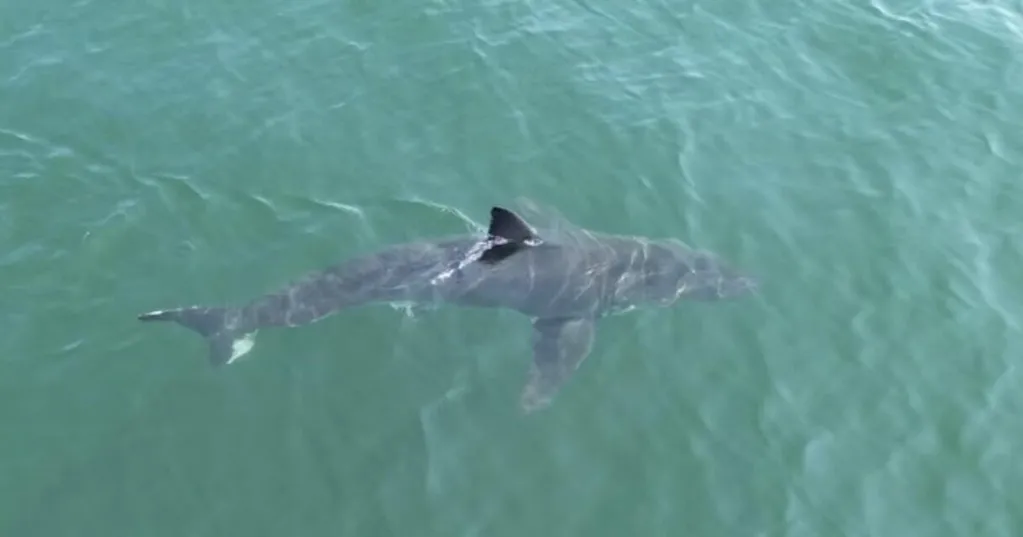New data shows that great white sharks are spending more time in the chilly waters off New England and Canada's Atlantic coast.
That means boaters, beachgoers and fishermen who spend time in the northern waters are learning to live with the predators made famous by the movie "Jaws" 50 years ago. Sightings of the sharks are up in places like Maine, where they were once very rarely spotted.
Scientists link the white shark sightings to increased availability of the seals the sharks feast on, and say beachgoers are generally very safe from shark bites.
Here's a breakdown by the numbers.
The Maine Department of Marine Resources has been monitoring great white shark activity in the Gulf of Maine since 2020. The department has said it intends to use the data to better understand white shark distribution off the state's coast.
According to a report published by the department last year, 93 white sharks had been detected in Maine's waters between the start of the monitoring period. Nineteen unique white sharks were recorded in 2024 alone, on 47 different dates, the department reported.
Earlier this month, drone video showed a great white shark lurking near some of Maine's most popular beaches, prompting police to issue a warning in one coastal town where a woman died in a shark attack.
In addition to the great white shark, at least seven other shark species live in Maine's waters. They are the basking shark, porbeagle, blue shark, sand tiger shark, common thresher, shortfin mako and spiny dogfish.
Most of these sharks pose a very minimal threat to humans, and some are harmless. Maine has confirmed only two unprovoked shark attacks since 1837, with the most recent one occurring in 2020.
The number of white sharks detected off Halifax, Nova Scotia, increased about 2.5 times from 2018 to 2022, according to a paper published in May in the journal Marine Ecology Progress Series.
Even farther north, the number detected in the Cabot Strait that separates Nova Scotia and Newfoundland increased nearly four times over, the paper said.
Maine's first recorded fatal shark attack happened in 2020, when a great white shark killed 63-year-old Julie Dimperio Holowach off Bailey Island.
But shark experts describe fatal shark bites as exceedingly rare, in Maine and everywhere else.
The International Shark Attack File at the Florida Museum of Natural History keeps a record of documented shark attacks. While the great white shark holds the record for most documented attacks on humans, the totals are still very low.
The white shark has been the source of 351 documented unprovoked shark attacks, and 59 of those have been fatal, the International Shark Attack File has reported. The Shark Attack File noted in its latest annual report that an uptick in deadly attacks on humans by white sharks, observed in 2023, did not continue into 2024.
